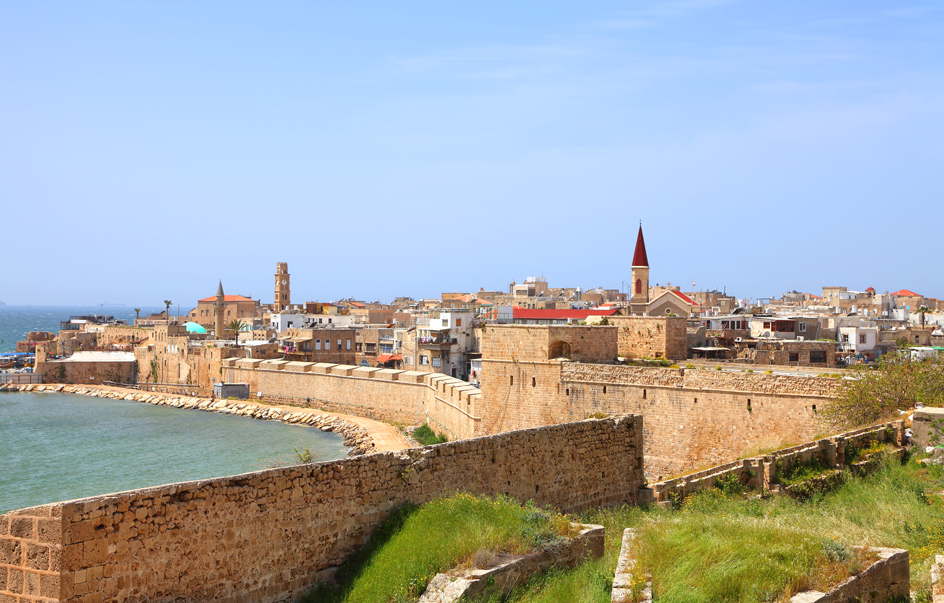Akko (pop. 49,614), also called Acre, is a small city in northern Israel. It lies on Haifa Bay, Israel’s only natural harbor on the Mediterranean Sea. Akko, a bustling modern port, is one of the world’s oldest continually inhabited cities. It is famous for its ancient walls, fortifications, and religious sites.

Much of modern Akko is dedicated to fishing, industry, and commercial shipping. Local factories produce steel, paint, and other products. Akko’s Old City has numerous ancient landmarks and hosts popular markets and festivals. It is noted for its churches, mosques, baths, and khans (inns). A number of museums document Akko’s long history.
Akko’s population is mainly Jewish with a large Muslim Arab minority. The city is also home to a small number of Christians, Bahá’ís, and Druses (also spelled Druzes). Bahá’ís and Druses practice monotheistic (one-God) religions that originated in Persia (present-day Iran) and nearby Syria.
People lived in what is now Akko as early as 3500 B.C. The city served as a port under the rule of several ancient cultures, including the Assyrians, Phoenicians, Egyptians, Greeks, Romans, and Persians. In the late A.D. 600’s, the city served early Islamic states called caliphates. During the 1100’s, Christian and Muslim forces fought over Akko during the Crusades. The Crusades were Christian military expeditions and religious wars proclaimed by the pope. Many of the fortifications from that era—including tunnels, a citadel, and the city walls—still stand.
Akko declined in the late 1200’s, and over time it largely disappeared. In the 1700’s, the city was revived and refortified under the rule of the Ottoman Empire, based in what is now Turkey. After World War I (1914-1918), Akko was included in the British mandate of Palestine. Israel took control of Akko during the 1948 Arab-Israeli war.
The Old City of Akko became a World Heritage Site in 2001. Such sites are designated as places of unique cultural or natural importance by the United Nations Educational, Scientific and Cultural Organization (UNESCO).
